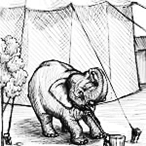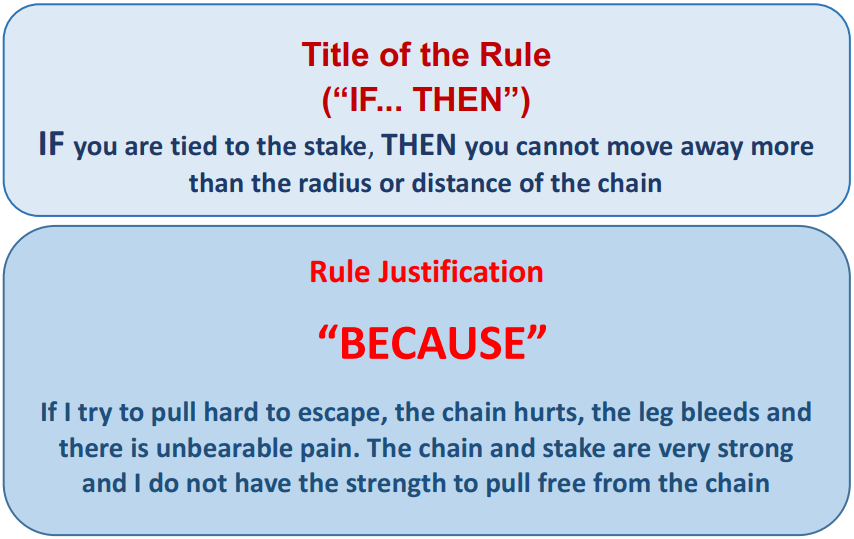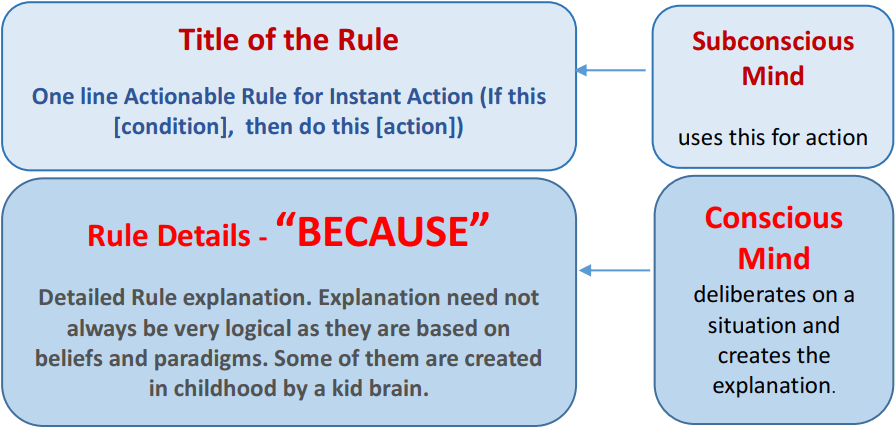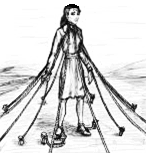| Subconscious Mind - Breaking Free from Self-Made Barriers |
| RELATED ARTICLES |
|
Summary
AbstractWe all think we know ourselves very well. We think our behaviour and actions are controlled. We may be far from truth when we say, "I have full control over my actions". You will be surprised to know that most of us have very little control on our actions. We are driven to do what we do, and we are not in control. Unbelievable but true. Prem Kamble tells you how and why. Not all actions are results of our conscious decisions. Most of our actions are results of what Prem calls Mental Reflex Actions™ which are controlled by our subconscious mind, and on which we have little control. This insight can help us better understand people and improve relations both in our personal and professional lives. The paper explains human behaviour in light of the controllable and the uncontrollable behaviour. It explains the meaning of subconscious mind, what goes in our subconscious mind, the unfathomable nature of what goes in the subconscious mind and how to know your subconscious mind. It explains what the "Subconscious Rule Book" is and how our life is run based on this rule book, of which our conscious mind may not be even aware. Most of us live our entire life without knowing what is there in our subconscious rule book. Uncovering your subconscious mind is the key to know yourself better, and can help you both in your professional and personal life. It can help you understand people around you - your subordinates and colleagues in office and your friends and relatives in personal life. Most importantly, understanding your subconscious mind can help you break free from your self-made barriers. You can understand other people well when you know yourself well. It can thus help improve your people management skills at work and your interpersonal relations. The key to understanding others is to know your inner self. We Have no Control on Our ActionsMost of us would vouch for ourselves: "My behavior is controlled." "I am in control of myself". You will be surprised to know that most often, we have very little control over our actions. We are driven to behave the way we do, and we are seldom in command.Unbelievable, but true. When we think before we decide or act, we do so with our conscious mind. But life is full of decisions and actions at every step. Every moment, our mind is busy analyzing and making split-second decisions. What you are doing now is a result of your decision to do so. Do you know how you arrived at this decision? Not really - not all actions are results of our conscious decisions. Most often, they are controlled by the subconscious mind. We have little or no control on the actions which are governed by our subconscious mind. Understanding subconscious mind and how it impacts our behavior can help us better understand ourselves and be at peace with oneself. It can also help us understand other people and improve our relations with them. What is Subconscious Mind?
One example often used to explain the subconscious mind is the process of car driving.
Initially when you are learning to drive, you have full concentration on the
gear, the clutch, etc. You are all concentration on the process of driving; you
look at every pothole, every bump, and every obstacle. As you get trained on
driving, the act goes into your subconscious mind and you tend to drive without
making a conscious effort to drive. You automatically avoid the obstacles, you
change gears when required while you could be doing umpteen other things at
the same time. As you drive, you could be talking to your companion sitting beside
you, listening to the music and observing the countryside.
As you practice driving again and again, you make decisions automatically and you drive instinctively. Driving decisions and actions go out of the conscious mind to the subconscious mind. After you have reached the destination, if you ask yourself which potholes or bumps you crossed on the way, you may not remember as you did not even notice when you actually slowed down and possibly changed gear to cross the bump. You did all that without being conscious of it.  Another good way to understand the subconscious mind is through the example of an elephant in a circus. Some of you may have noticed that the huge elephants in the circus are tied with a chain to a small stick dug in the ground (called a stake). The mighty elephant can easily pull the stake and run away. But it does not do so. The moment it is tied to the stake, it remains put. Now why does the elephant do so?
Another good way to understand the subconscious mind is through the example of an elephant in a circus. Some of you may have noticed that the huge elephants in the circus are tied with a chain to a small stick dug in the ground (called a stake). The mighty elephant can easily pull the stake and run away. But it does not do so. The moment it is tied to the stake, it remains put. Now why does the elephant do so?
 When the elephant was small, it was tied with the same chain to the same stake. It then tried to run away, but could not break free. It pulled and pulled till it pained and its feet bled. It did that again and again, and finally gave up. The thought of blood and fear of pain drove it to believe that it cannot break free when tied to the stake. Repeated attempts to break free only reinforced the belief and slowly it went into the subconscious mind.
When the elephant was small, it was tied with the same chain to the same stake. It then tried to run away, but could not break free. It pulled and pulled till it pained and its feet bled. It did that again and again, and finally gave up. The thought of blood and fear of pain drove it to believe that it cannot break free when tied to the stake. Repeated attempts to break free only reinforced the belief and slowly it went into the subconscious mind.
Now years later, though the elephant has grown up and has enough strength to uproot the stake, it doesn't do so. It remains within the radius of the chain. The subconscious mind controls the actions and behaviour of the elephant for the rest of its life, just as it controls your actions when you drive. Yet another way to understand the subconscious mind is to do the following simple exercise. Hold your palm up horizontally in front of your face. Now close your eyes and imagine that you have a lemon on your palm right before your eyes. I would urge that you actually do this before you read any further. Did you experience your mouth watering when you imagined a lemon in your palm? The conscious mind knows that there is no lemon and that it is only an imagination. The subconscious mind is illogical and immediately believes what is in the conscious mind and as a result your mouth waters. The conscious mind is logical and analytical, whereas the subconscious mind is illogical. What Goes into our Subconscious Mind?

Similar to the example of driving a car on a road avoiding potholes, we have been driving down our life's journey - a journey which we started as a kid. There were various obstacles and potholes in our life's journey, and we crossed them all - but with important learning all along the way. Based on whether our actions had positive or negative impact on us, we also made important judgements and decisions on do's and don'ts in life, things we should do and what we should not. We made our own inferences on where the life's potholes and bumps lie, what they look like, and what you should do in life to either avoid or manage them. We formed opinions and passed judgements about ourselves, about people around us; about what type of people are good and what type of people are bad. We accumulated some learning and created our behavioural ground rules or a rule-book. This rule-book is the foundation of our beliefs and biases which we carry all our life. All of us made conclusions about people based on their looks. Just because that person with long nose and grey eyes we met was bad, our brain concluded that all men with long nose and grey eyes are bad. A rule was written in the rule-book. Whenever we got into situations or faced conditions which resulted in unpleasant experiences, our brain worked out ways to avoid such situations by retracting, withdrawing, eluding, evading or staying clear of them. For instance, you went to a party and got into an embarrassing situation, or someone made an unpleasant comment about you - you made a judgement about yourself and added another rule in your rule book - never to go to parties again. A few repetetions of similar incidents, and the rule got written in stone in your subconscious rule book. We have actually identified the potholes on the path of our life. These potholes are situations or conditions which led to embarrassment or unpleasant experiences. Or they are people with some particular physical traits, etc. which we have concluded to be 'bad guys' to be avoided. As we drive through our life's journey, we make sure that we avoid these potholes. If some of these experiences get repeated, may be purely by chance, our beliefs get the support that we subconsciously try to seek: "See, didn't I tell you so?", "See, I was right!"- we tell ourselves. We thus keep reinforcing our beliefs and rules, however illogical they may be. Just as the act of car driving goes into our subconscious mind by frequent repetitions, a great deal of judgements and rules created by our brain get pushed into our subconscious mind by repeated reinforcement. And once they enter the subconscious mind, they remain active throughout our life though invisible to the conscious mind, like our driving skills.
These rules get so firmly set in our subconscious mind that when we see a person with the characteristics we defined in our subconscious rule book, we automatically react in a specific way defined in our rule book, and we don't even notice that we reacted as per the rule book. Just as we drive the car while avoiding the potholes and slowing down for bumps without really noticing them with our conscious mind, we tread the life's path avoiding imaginary potholes, slowing down on bumps that we defined without even realizing that we do so, without realizing why we do what we do. Just as while we drive a car our brain makes several hundred decisions every moment without our conscious mind knowing it, we make numerous decisions every moment in our life and we obviously don't make them with the conscious mind. These decisions are based on the knowledge base and rule-book stored in our subconscious mind. Like the physical reflex actions that we very well know about, these are what I call the Mental Reflex Actions™ (discussed later). Our behavior therefore is not a voluntary behavior but largely governed by involuntary actions. And we call ourselves highly balanced people acting on conscious decisions. When we are driving the vehicle of our life today, we actually drive topsy-turvy, because of the mental potholes which we have defined right from our childhood. Like in the case of the elephant, these potholes may not be there now because of the changed conditions, or possibly never existed at all. We could have erred in our judgement and enacted bumps where there exist none. We still try to avoid those mental pot holes or slow down for bumps without noticing either the imaginary potholes and bumps, or our topsy-turvy driving. You may have experienced sometimes that you act in a way and then the very next moment, you ask yourself, "Hey, now why did I do what I did?" Most likely, you did so because of a mental pothole. You will be surprised to know that actually the situations may have changed, conditions in your life may have changed, your own abilities have changed, but you were simply reacting to a mental pothole the way your mind has got conditioned to react to it. Subconscious Rules and the Rule Book

Fig. 3: The Rule that the Elephant wrote Now let us see how this rule book governs our actions and lives. An analogy of how businesses run comes in handy to understand this. In business organisations, you have a hierarchy of managers. Normally, the senior managers define the policies and rules, and the junior employees follow them. Theirs is not to question why, but simply follow as per the instruction. This in a way speeds up decision making, as junior officers can make decisions based on the rules and decide what action to take. This improves efficiency of businesses and appears to be the right way to function. The senior brains are not disturbed time and again, as they may be busy analyzing logically and formulating more important decisions for the future. The senior brains are more expensive too, and they don't waste their time on petty decision making for which rules are clearly set and lesser brains can execute them. Organizations also therefore have a rule book, which is called a policy document. We can also use the analogy of the computer. A programmer decides the logic and codes it into a program. A program is a set of instructions specifying "what to do when". The program is then fed to the computer. The computer CPU simply executes the rules and instructions as defined by the programmer in the program, The computer, like a dumb person, follows the instructions whether right or wrong, without questioning. In humans, obviously, the "Rule Details" part of our rule was made by the conscious mind, as it is logical and analytical. The conscious mind, therefore, is equivalent to the senior officers of a business organization. Once the rules are made, the conscious mind hands over the rule book to the subconscious mind (Fig. 4). Since the conscious mind is ever busy, and our brain has to make umpteen quick decisions every moment, the subconscious mind comes to help and acts like the junior officers to swiftly act based on the rule book. So what does the subconscious mind do? It only looks at the title of the rule (IF..THEN..) and instantly acts as per the rule. It never bothers to even look at the second part of the rule, i.e. the "Because" or detailed justification for the action. Probably the subconscious mind does not even have access to the detailed explanation or justification of the rule. In businesses too, the policy document only has the rules, it does not contain any "why" or justification of the rule. The junior officers only follow the rule without being given details of the detailed reasoning for the rule. The subconscious mind simply executes the rules, and it does a super quick and super-efficient job. Meanwhile the conscious mind remains undisturbed. 
Fig. 4: The Rule and the Conscious/Sub-conscious Mind This process, like in businesses, improves our decision making ability, so seems to be an excellent way of functioning. But there is a huge problem. The Problem with the Subconscious Rule Book
The problem is that we started making these judgements very early in our life when we were kids and had neither the capability to truly assess the situations, nor the maturity to make decisions. But based on our kid-brains, we did make some important precepts about do's and don'ts in life.
Mental Reflex Action™A large part of our irrationality is attributed to our subconscious mind. Our irrationality is due to what I call the Mental Reflex Action, similar to the physical reflex action that we are all familiar with. Physical reflex action is a result of a command to react before the message reaches our rational brain, before we are aware of the action. Mental reflex action results when the result is a split-second 'mechanical' reaction based on our subconscious rule book. The brain makes a quick reference to the rule book and like a computerized output pulls out and executes the resultant action. Since we make several split second decisions every moment, the subconscious rule book helps us to get instant decisions without the delay of conscious reasoning every time there is a stimulus. It is a different matter that most of the rules in this book have been written in our childhood with obvious biases. There is a major difference between the physical reflex action and the mental reflex action. While, in case of physical reflex action, we become conscious of the reaction in a few moments after the reaction, we may never be even aware of the reactions of our mental reflex action. Hence the irrational rule book never gets revised or corrected. The Subconscious Pain Points

All of us have in our minds a list of our own qualities about which we feel we are "not OK". These could be qualities that relate to your looks or complexion, or your abilities or your very nature. They fall under two categories: those which make you feel inferior, and those which you don't care a hoot about, or in other words, they don't really make you feel low. There are those for which we have a complex and we feel hurt when we are reminded of our shortcomings. We have heartburn when we think of our own failings, and are even ashamed to admit our weakness. There are some about which we can comfortably admit our weakness and say "I am not OK" or "I am not good at this", and have no real pangs of conscience while saying it. Most of our unnatural or abnormal behavior is due to the second category of "Not OK" items in us. These are items of which we formed some opinion about ourselves ("I am not OK") in our childhood, and then they got reinforced into our subconscious mind. Or these could be associated with some embarrassing experiences when we had to be ashamed of our own self, creating a "Not OK" verdict about ourselves. These are things which we would like to forget about and not think of - we almost try to banish these thoughts and memories and push them under the carpet. They may go out of our conscious mind, but remain in our subconscious mind. These are our subconscious pain points. When you have a pain in the stomach, the doctor checks you by poking his fingers at various points asking you whether it pains. It may not pain when the doctor presses at different points, and suddenly when he presses at a particular point, you scream in pain. Similarly, each one of us has pain points in our personality or character. These pain points are those aspects where we feel "I am not OK" (or, in other words, we have an inferiority complex). We go through several incidents and experiences in life which prick different parts of your personality causing little or no pain, whereas there are some incidents which poke you on your subconscious pain points and you scream with pain. Your behavior is the most unpredictable and uncontrolled when you are ruffled up on any of your subconscious pain points. Incidents in life or comments of people around you may continuously touch your conscience, but you may not react till it pricks on the subconscious pain point and then the reaction is again almost explosive. Since the subconscious pain points are different for different persons, different people may react to same stimuli differently. Whereas one is deeply hurt by a comment, someone else may not care a damn. You may have noticed that when the same derogatory comment is made to a group of people (or a group of students), some get terribly upset (some may even get driven to suicide) and the rest may not be affected at all. When we experience these subconscious pain points, we are overcome with some strange senses and our reaction may not be very controlled. These could well be the same feelings and sensations that you first had when you had the unpleasant experience as a kid, and which you all along tried to push under the carpet and banish from your mind. In such situations, we become absolutely helpless in our actions. We are totally driven and not in control. Whenever we face that situation which touches our subconscious pain point, we always compulsively react with very little control. However hard we try and decide to act differently, when it comes to the real moment, we are helplessly overcome by that same sensation and feeling and we act predictably (against our wish) driven by our subconscious mind. All of us have "pain points". And hence all of us have our idiosyncrasies. Whenever these pain points are disturbed by some stimulus (which most often is a comment made by somebody about you), we react sharply. This shows the driven-ness of our behavior - we are driven to some behavior and are absolutely helpless in these circumstances. However hard we may like to behave differently, our actions are orchestrated by our subconscious mind. An insight into this aspect of human behavior can spare us a lot of heartburn about our own and other people's behavior. Whenever you get upset, you tend to blame it on others or external factors. That is far from true. It is YOU who has upset you. Whenever you are annoyed or piqued, it is not on account of any external factor, but because of your own inferiority complex - because of the deep-seated pain points within. How to Uncover Your Subconscious Pain Points
The Learning - Our Behavior is Driven by our Subconscious Mind
We do few things out of conscious mind, whereas most of our actions are dependent on the subconscious mind. They are like reflex action in some ways, but different in many ways. In case of physical reflex action, there is some action or disturbance in or around you, and before you know or you realize it, your body reacts to the disturbance. But immediately after the physical reflex action, you know how your body has reacted. However in case of subconscious behavior or the Mental Reflex Action™, most often, our conscious mind is not even aware that we have reacted to certain subconscious stimuli.
Brave New World - A Peep into the FutureWhere we stand today, we are not even aware of this subconscious rule book, leave alone knowing what is written in the rule book. As stated earlier, most of us live our entire life without knowing our subconscious rule book. Today, all we can do is try our best using not-so-easy methods to uncover the hidden subconscious rule book, discover the messy rules which have gone into the book, and try to break free from our bondages. But with our ever increasing span of knowledge and progress in science, I almost feel confident that man will in future invent methods to overcome this problem of an illogical subconscious rule book. I believe that since unthinkable things have been achieved by science and technology, we should think of the unthinkable for future possibilities. Only visualizing the unthinkable can pave the way to new discoveries. I visualize a world where man would have found means to retrieve this rule book, read the rules which were written by our kid brain, re-analyse with our adult brain and rewrite the corrected rules. My optimistic mind thinks that if not today, man will advance to a level where there will be a method to rewrite our subconscious (irrational) rule book. This is only phase 1 of an advanced solution. We can think of a more advanced solution in phase 2. In the above solution in phase 1, we allowed the rule book to get populated with illogical rules, allowed it to get buried in our subconscious mind and then uncovered it to rewrite the rules. But why allow the illogical rules to be written in the subconscious rule book in the first place? In phase 2, with advanced scientific know-how, man will invent methods to prevent illogical rules getting into the rule book even in our childhood. If we prevent illogical rules from getting into the rule book, there will be no need to correct the book later.
Go Top
Related Readings:
Also See: |
|
copyright © 2001 Prem Kamble (Updated 2021) |
comments powered by Disqus
Pls use the Comments box above to submit comments.




 By the time we are adults, we would have accumulated a huge list of rules, almost written a volume of Rule book. Like in the case of the elephant, most of our rules are restrictive, they tie us down. They act like barriers and stop us from acting. And since we feel so good when we are proved right, we subconsciously seek situations and even create conditions to prove the rules right. We almost fall in love with our rule book. Throughout our life, we keep adding rules to create a huge book of rules. I call it "The Subconscious Rule Book".
By the time we are adults, we would have accumulated a huge list of rules, almost written a volume of Rule book. Like in the case of the elephant, most of our rules are restrictive, they tie us down. They act like barriers and stop us from acting. And since we feel so good when we are proved right, we subconsciously seek situations and even create conditions to prove the rules right. We almost fall in love with our rule book. Throughout our life, we keep adding rules to create a huge book of rules. I call it "The Subconscious Rule Book".
 The pain points in our subconscious mind are hidden in some remote
corner of our mind under some self-imposed cover. We prefer to keep them under
cover since most of these are recordings of unpleasant experiences which we
would like to forget. The difficult part
is to discover these unpleasant memories hidden in our subconscious mind.
Once discovered, you can possibly work to remove them. But how do you uncover these hidden pain points, how do you uncover your subconscious mind?
The pain points in our subconscious mind are hidden in some remote
corner of our mind under some self-imposed cover. We prefer to keep them under
cover since most of these are recordings of unpleasant experiences which we
would like to forget. The difficult part
is to discover these unpleasant memories hidden in our subconscious mind.
Once discovered, you can possibly work to remove them. But how do you uncover these hidden pain points, how do you uncover your subconscious mind?